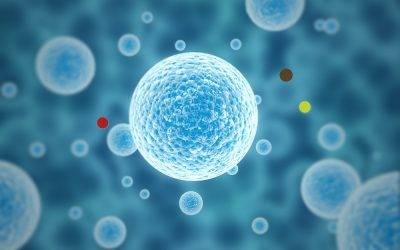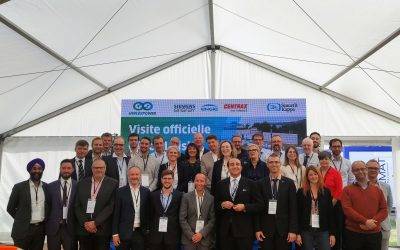Uncovering the natural history of prostate cancer
Prostate cancer: clinicians and researchers join forces
Clinicians and researchers are joining forces in a virtual studyathon to explore the natural history of prostate cancer in a large dataset of patients from across the globe. Clinicians, epidemiologists and other researchers are invited to take part.
The aim is to:
– study the clinical management of prostate cancer.
– support clinicians and researchers with better data on the possible outcomes of different treatment options.
– explore the potential to generate and validate more accurate prediction algorithms based on data from Europe, the USA and other parts of the globe.
Unfortunately, there is still surprisingly little data at scale on what the ‘natural history’ (progression of the disease in absence of treatment) is and how co-morbidities (other life-threatening medical conditions) influence the life expectancy of patients diagnosed with prostate cancer. It would greatly aid shared-decision making between clinicians and patients to have a better understanding of which patients will pass away as a result of prostate cancer versus other causes, to establish where treatment would be most effective and to avoid unnecessary interventions for patients.
Joint forces to study the clinical management of prostate cancer
To achieve this clinicians and researchers are joining forces in a virtual studyathon to explore the natural history of prostate cancer in a large dataset of patients from across the globe. The aim of the studyathon is to support clinicians and researchers with better data on the possible outcomes of different treatment options and to explore the potential to generate and validate more accurate prediction algorithms based on data from Europe, the USA and other parts of the globe.
New big data approaches pioneered by OHDSI and EHDEN are changing the way in which medical evidence is generated through systematic large-scale data analysis in health data sources globally. In particular, a studyathon is a focused event in which a large-scale study, which traditionally takes many months to complete, is executed and completed in a few days. This approach has recently been successfully applied to studies in rheumatoid arthritis, hypertension and COVID-19 (see links below), and we now aim to do the same for prostate cancer. Movember is supporting this project too with project design ideas drawn from their experiences in multidisciplinary, global collaboration.
Via PIONEER and EHDEN, datasets with healthcare records for more than 1 million patients with prostate cancer are already accessible for the studyathon, but we are seeking additional data sources with longitudinal data, especially those converted to the OMOP Common Data Model to join this effort. Clinicians, epidemiologists and other researchers interested in this question are also invited to take part.
The studyathon itself will be a five day virtual event on 8-12 March 2021, with sessions every day focused on literature review, phenotype definition, analytics and results interpretation, and will follow the OHDSI approach. Please register your interest via this link and join us in this journey!
The projects
PIONEER (Prostate Cancer DIagnOsis and TreatmeNt Enhancement through the Power of Big Data in EuRope) is a European project focused on using big data to improve the clinical understanding and inform the diagnosis and treatment of prostate cancer, funded through IMI2 JU, and is listed under grant agreement No. 777492.
EHDEN (European Health Data & Evidence Network) is a European project focused on generating medical insights at scale from real-world clinical data, funded through IMI2 JU, and is listed under grant agreement No. 806968.
OHDSI (Observational Health Data Sciences and Informatics) is a multi-stakeholder, interdisciplinary open science collaborative aiming to bring out the value of health data through large-scale analytics. Earlier studyathons have resulted in publications in amongst others The Lancet Rheumatology, The Lancet Digital Health and Nature Communications.
PIONEER and EHDEN are funded through the IMI2 Joint Undertaking. This joint undertaking receives support from the European Union’s Horizon 2020 research and innovation programme and EFPIA.
Why the carousel of amendments to the R&D tax credit law continues to turn
The R&D tax credits in 2024The year 2024 has proven to be decisive for the German R&D tax credits. Following the most recent amendment as part of the Growth Opportunities Act in March, the Federal Government realized during the budget consultations for 2025...
Register Now: In Conversation with EBiSC2
Unlocking the Potential of Stem Cells: Discover the EBiSC Journey to SustainabilityJoin the conversation on the initiative that’s shaping the future of biomedical research! On May 15, 2024, from 14:15 to 15:00 CEST (Europe/Brussels time), the Innovative Health...
The R&D tax credit with a blind eye to earnings –
Why loss-making companies (wrongly) hesitate
Recapitulation The German R&D tax credit has become much more popular in recent years after a modest response following the introduction of the instrument. This can be seen not only in advertising and studies by various associations, but also in the bare figures...
Junior Funding Consultant (m/f/d)
We offer you the unique opportunity to become part of a successful & young team in the attractive growth market for tax-incentivised research funding (R&D tax credits). We are looking for Junior Funding Consultants with a passion for innovation, scientific...
First successful demonstration with 100% green H2
HYFLEXPOWER celebrates successful operation of a gas turbine with 100% green H2On October 12, 2023, at a public event hosted at the HYFLEXPOWER demonstrator site in Saillat-sur-Vienne, France, the HYFLEXPOWER consortium unveiled a ground-breaking achievement - the...
New Security Project AGILE Will Improve Disaster Risk Management
New international security project to improve disaster risk management for unexpected eventsThe international security project AGILE will kick start today. The project is to develop novel tools and methodologies for understanding, anticipating, and managing High...
SYNERGISE for Improved Disaster Management
Internationally Funded Project to Develop an Integrated Toolkit for Improved Management of Natural and Man-Made Disasters Kicks-Off TodayTo boost the efficiency and safety of first responders during life-saving missions, the SYNERGISE team will develop a Novel...
Junior Innovation Consultant (m/f/d)
We offer you the unique opportunity to become part of a dynamic team in the attractive field of innovation and research. We are looking for Innovation Consultants with a passion for innovation, scientific writing and project management. This position is for recent...
Senior Innovation Consultant (m/f/d)
We offer you the unique opportunity to become part of a dynamic team in the attractive field of innovation and research. We are looking for specialists with a passion for innovation, scientific writing and project management. This position is for experienced...
Business Developer (m/f/d)
We are looking for specialists in business development with a strong sales talent and an interest in innovation, research and science. This position is for recent graduates or experienced professionals and involves assisting clients from a variety of industries with...












